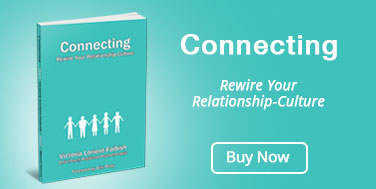Transcribed from my video at www.youtube.com/askvictoria.
So often I see that people have the chronic issue of being defensiveness in their responses. This can really put a damper on relationships both personally and professionally. Usually this superiority oriented response is a cover up for an inferiority feeling within. Watch this video to help you reverse and resolve this auto pilot reactiveness that may not be serving you at all.
Today I’d like to talk about something that I see chronically in people and their relationships, and it’s called being defensive. It can ruin relationships, reputations, basically peacefulness and joy within. I want you to understand, firstly, what defensiveness is all about. Usually, defensiveness will look like sarcasm, passive aggressiveness, a need to immediately correct someone or respond with an explanation that’s very pointed. Often, it is not received very positively I’m here to tell you! Essentially, if you stop and feel what’s actually going on, you’ll usually find that the need to be defensive, to correct someone, often comes from a fear of abandonment, rejection, being gossiped about or ostracized on some level (the rejection piece). It often occurs as an auto-pilot response. The person isn’t measuring their words; they’re just blurting them out. It can be very off-putting, especially in work situations, and in love relationships.
(1:40) When you’re being defensive it’s actually not necessary. Sometimes the person you’re perceiving as attacking or invading is actually not; they’re just making a comment that triggers you, and the trigger is usually a feeling that somehow you’re inadequate, or you’re going to be judged or rejected or abandoned for that inadequacy. So that defensiveness is a superiority feeling covering up an inferiority, insecurity feeling.
(2:14) So I want you to be very aware that defensiveness ought to be corrected, because it does not serve you most often. And the way to correct it is, number one: stop the auto-pilot reaction. That means calm yourself and breathe, and not respond immediately: count one, two, three (internally, obviously), four, five, before you make a decision to respond, and not just respond automatically. This is something I see often, and it causes rifts and problems, and people perceive the defensive person as rather touchy, having more boundaries than they actually need. This is something that I observe as a problem for people, and that is why I’m doing a video about it. The solution is to breathe, not respond automatically; acknowledge what you’re feeling: hurt, afraid of rejection or some sort of negative thing that you’re perceiving from that other person. The acknowledgment will reduce the power of the need to be defensive. It will actually empower you, because you’re in your truth, and whenever you’re in your truth, there’s more power in you. Defensiveness is actually quite disempowered, because you’re trying to shut someone down. But in the end, you’ve got a lot of repercussions: guilty feelings, remorse for that aggressive response. So take this video, if you are defensive and are being told that you’re being defensive, and try to take the steps of breathing, not responding immediately, and acknowledging your true feelings that are underneath this need to be reactive.
Victoria Lorient-Faibish MEd, CCC, RPP, RPE
Holistic Psychotherapist
Masters in Educational Psychology
Canadian Certified Counsellor
Registered Polarity Practitioner
Registered Polarity Educator
Reiki Master
New Decision Therapy








